The Writing Life of: Clare Coombes
Clare Coombes
This week on ‘The Writing Life of:‘ I am thrilled to be interviewing author Clare Coombes. Clare Coombes will be sharing with us detail of her writing life, telling us all about her latest book ‘We Are of Dust‘, which was released on 3rd December 2018 and answering a few fun questions too.
So without further ado I’ll hand you over to Clare Coombes. Post contains affiliate links.
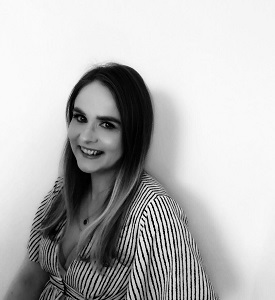
Clare Coombes lives in Liverpool, UK, where she spends her time writing, reading, researching and editing, tap dancing – and looking after a toddler.
She is one half of the Liverpool Editing Company, a publishing consultancy group designed to guide authors through each step of the publishing process. Her commended short stories and novel extracts feature in a number of publications, competitions and journals. Her debut novel, Definitions, was published in 2015 by Bennion Kearney to acclaimed Amazon reviews.
Her wide-ranging non-fiction portfolio comprises everything from art to astrophysics, and her work has been published in a variety of national media outlets, receiving award nominations such as Science News’ ‘Breakthrough Story of the Year’.
She has judged fiction competitions, taught on Creative Writing postgraduate modules and given talks in schools and at high-profile events on writing as a career.
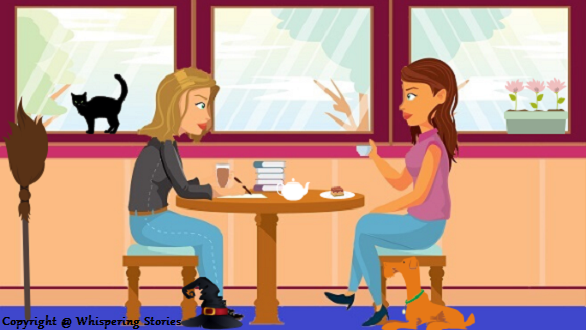
1) As a child what did you want to do when you grew up?
I wanted to do a lot of things, and writing a book was one of them. As most children do, I just assumed when you finished education there was some sort of easy way into these things, like I would join the ‘want to be a writer’ queue and someone would show me the exact way to do it.
2) Who were your favourite childhood authors?
My mum was always reading when I was growing up and I’d pick up anything she’d bought and give it a go from a young age. She was from Dublin, so I started out by thinking being Irish was a requirement to be a writer and that I was already half way there – Roddy Doyle, James Joyce, Marian Keyes, Maeve Binchy were always in our house (in book form). To Kill a Mocking Bird also had a real impact on me. It made me realise that books could change perceptions and help to improve who we are and how we live.
I also loved Enid Blyton, especially Mallory Towers, and The Babysitters Club were another favourite. You could often find me in a 1940s English boarding school or 1990s Connecticut.
3) At what point in your life did you realise you wanted to be a writer?
It was a definite when I chose English literature over biochemistry for university. I was sitting in my chemistry A-Level, drawing some sort of complex ion, when I realised that I didn’t want to write in molecules beyond that.
4) How did you go about following that dream?
When I realised there was no queue to be a writer, I started training. Some people say that writing should be a natural talent and you can’t teach it, but I think that’s wrong. All talent needs teaching, in any subject. You wouldn’t tell someone who was good at football or tennis that they didn’t need to train.
5) What is your writing day like? Do you aim for a certain amount of pages or words before you stop for the day?
I usually put a timer on my phone for one hour, and that can be at any time of the day. I must write for this time, with no excuses and no matter what rubbish was coming out. I got a lot of good content from supposedly bad writing days (well hours) in this way.
6) Did you ever consider writing under a pseudonym?
I did at first, because I was terrified of what people would think as there is an assumption you’re always writing from experience. Writers do put extracts of emotions and experiences into their work, but it’s always mixed in by what they’re read, watched, studied and seen in other people.
7) Do you have any strange habits before starting, or whilst in the midst of writing?
Boiling the kettle a lot and forgetting to make any tea because I suddenly get a new idea or the perfect sentence in my head.
8) Do you write longhand, typewriter, or on a computer?
Straight onto my laptop, but I do carry a notebook everywhere and I’m always emailing random notes to myself.
9) How many books have you written? Do you have any unpublished work?
Two books: Definitions in 2015 and now We Are of Dust.
I have a lot of unpublished work from the early days. And it’ll stay unpublished as it’s horrendous.
With my latest book, I feel more like the writer I want to be.
10) Are you a plotter or a pantser?
A plotter. I have a spreadsheet, colour codes and character sheets. I start each chapter with a short overview of what I want to do and extend that into bullet points which I then start filling out.
I always tell the writers I work with to put together a synopsis first (not a book blurb but an account of what happens with all the spoilers). It might change but having a plot outline makes such a difference and can be what’s needed for a book to get finished.
11) Do you read all the reviews left for your book(s)?
I do read all the reviews and consider them. It’s funny but with my first book, I often agree with the negative points, and use them to improve.
Concerning your latest book:
Publisher – The Liverpool Publishing Company
Pages – 300
Release Date – 3rd December 2018
ISBN 13 – 978-1999300500
Format – ebook, paperback

‘You wouldn’t have got close to me if you’d known who I was.’
After all, she had been taught to hate him too.
Alice Sommer, the half-Jewish daughter of a prominent German physicist, and Kurt Hertz, a troubled Hitler Youth from the poorest district of Berlin, couldn’t have less in common; but when they each find themselves on the run from the Gestapo, cast adrift aboard a ship of spies, refugees and resistance fighters, their destinies become inextricably linked.
With the ship becoming a matter of special interest to some of the most influential members of the Nazi Party, the stakes are raised even higher. Will Alice and Kurt be able to put aside their seemingly irreconcilable differences for the sake of their own lives?
12) How long did it take you to get from the idea’s stage to your date of publication?
Probably around three years. I had to take a maternity leave break because the subject was too emotional to write about.
13) How did you come up with the names for your characters?
Googling German names popular in the 1910s-1930s. But then I ended up with the same names as another author for my main characters. I tweeted and told him, and we laughed about it. But then I changed mine as he’d got there first, was more successful than me and probably wouldn’t have been laughing if I’d carried on using them.
14) Can you give us an insight into your main character(s) life?, What makes them tick?
My main characters are just trying to survive. These quotes from the book will help to explain their world.
Growing up in Nazi Germany, murder was hard to avoid, regardless of which side you were on. It happened on the streets, in homes, in jails, in parks. It was normal – just another part of an upbringing twisted by Hitler’s madness.
*There was such sadness in his voice that she had to look away from him. Fun belonged to the past, before life became purely about surviving. She had spent so long thinking of death that the purpose of life had become something she couldn’t quite grasp anymore. Life seemed like so much effort and caused so much worry and anguish that it hardly seemed worth the trouble. No, life was not about living – not about enjoying yourself, making friends, being yourself or going out to eat and drink and laugh, like it was for other teenagers. It was all about death.
15) Which was your hardest scene to write?
The scenes between Alice and her little sister were difficult because they have a mother-daughter bond, and the choices Alice is forced to make to protect the much younger Edie are heart-breaking. Edie’s perception of the world through how she has been treated for so long is also really sad. That is the same for a lot of my characters who find it hard to remember a time when they weren’t persecuted.
16) How did you come up with the title of your book?
I was looking back through a funeral scene and I thought it perfectly conveyed the message I wanted to get across in this book – ‘we are of dust’ as ‘we are all the same’. I’m not religious, but it was just the idea that everything that happened to my characters was because they had been told they were ‘different’.
The darkness was dense and sooty, and the fog, which had appeared as evening began to draw in, became an expedient velvet blanket to hide the deed beneath. They could hear the professor’s funeral starting on the far deck, where a small crowd had gathered. As they passed on the other side, Kurt heard the words, Remember God, that we are of dust.
17) Did you get a family member/friend to read your work before sending to the publishers?
I send it to a professional editor (in my case, as I’m a co-director of an editing company, my business partner Matthew McKeown).
Family members and friends should only read it when it’s published, unless they’re writers or editors.
18) What process did you go through to get your book published?
I went through a traditional publisher for my first book, which was great. But since starting my own editing and publishing company, I realised how much I enjoyed the independent author process. You get to decide so much from your cover to you marketing, and now I’ve been through it, I love helping other writers to do the same.
19) What did you do once you had written the final word in your book?
Immediately thought how much editing it was going to need. Never send a first draft anywhere.
20) What’s next for you, writing-wise?
Book two of the trilogy, of which We Are of Dust is the first. I’ve written the synopsis (of course) and then I have notes and ideas all in one document that I add to as I research.
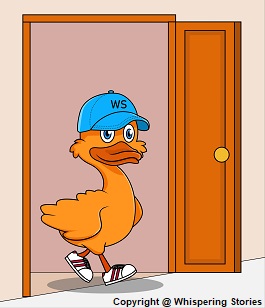
1) What’s your favourite food?
Cheese. It can improve anything.
2) If you had a box of crayons and you could only choose one, which colour would you choose?
Whatever my two year old daughter told me to choose.
3) What movie could you watch over and over again?
The Devil Wears Prada.
4) What would be the top song on your playlist?
Come Alive from The Greatest Showman. The line in it, ‘I know we can’t go back again to the world that we were living in,’ makes me think of the characters I created for We Are of Dust.
5) If you won millions, what would be your first purchase?
Paying off the things that trap us in life but are impossible to avoid, like mortgages and bills, for my family and everyone I know. I’d try and help as many people as possible. Who needs millions? I’m not judging people as it depends on what makes your life better.
I hate the way the car industry rips everyone off now, but if a car will make you happy and your life easier – get one. Spend the most creating freedom and time though, and always keep your moral sense of fairness. The concept of ‘first class’ on places like trains and planes really bothers me, as I think, if you can design more comfort for some people, why not do it for everyone? I’d probably end up upgrading everyone, everywhere I went.
6) A talking duck walks into your room wearing a baseball cap and sunglasses, what’s the first thing he says to you?
‘Reality, as you know it, is over.’
You can find out more about Clare Coombes by visiting the website/social media sites below.
I would like to say a big thank you to Clare Coombes for sharing with us details of her writing life, and for a wonderful interview.

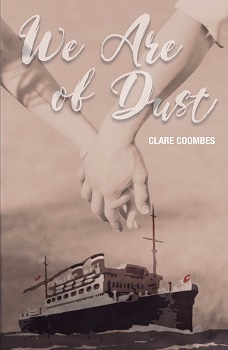
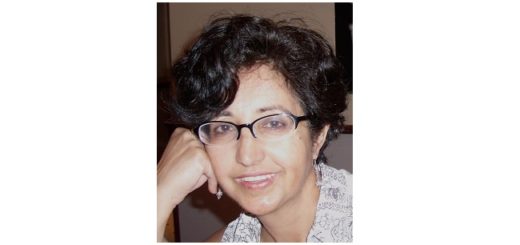
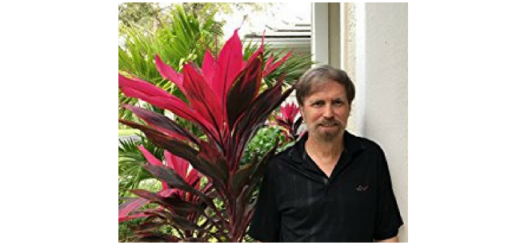
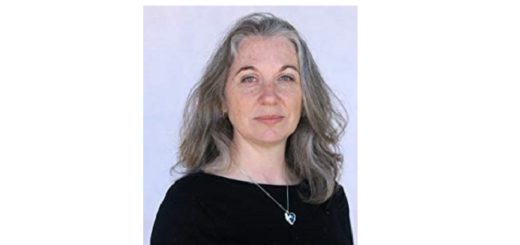


I love reading interviews, the author is new to me. It’s really nice when we can achieve our childhood dream when we grew up.
Nice set of questions you have asked.
Great interview. We are of dust sounds interesting.
I love learning about new writers and books. I think both sound interesting.
Fascinating interview and the book sounds like one I should check out.
That blurb sounds interesting! And I really like the cover.
She was new to me, thanx for the info
Great interview! But I’m wondering… do people really snack on bits of cheese while writing? Without bread or crackers or something?
Great interview! Loved the answers 🙂
Love your interview. Clare’s new book interests me too.
Thank you. Glad you enjoyed the interview.
Thank you. I agree about the book.
Glad you like the interview.
Thank you. I agree.
I think the cover looks fab too.
Always a pleasure
Yep they do. I’ve been know to take a block of cheese and cut bits off it and eat it. I love cheese.
Thank you. Glad you enjoyed it.
Thank you.
Loved reading it. Happy to know that an author is taking criticism in her stride.
Great post and great interview Clare Coombes is a new author to me her book looks and sounds very intriguing. Thank you so much for sharing your awesome post.